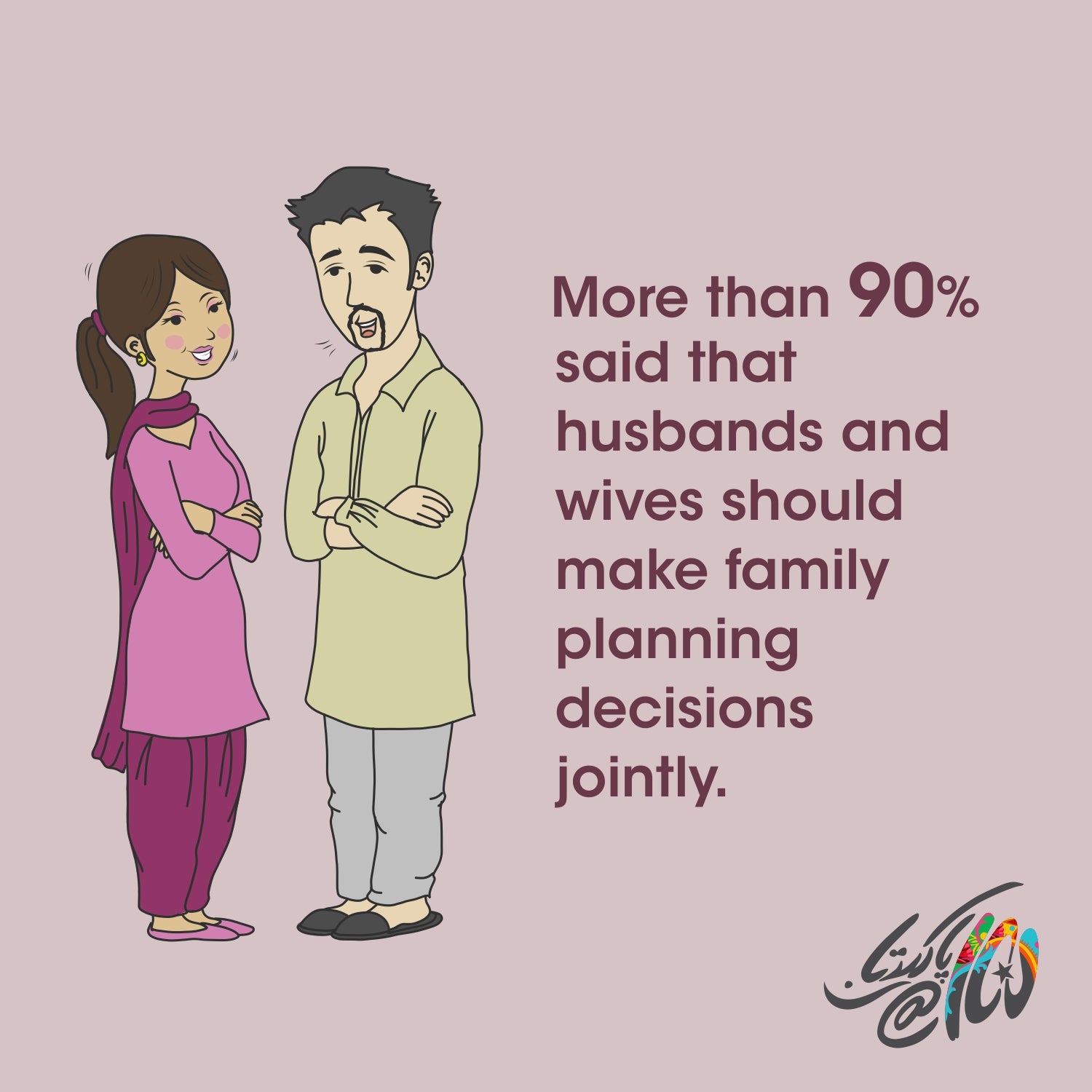
Our recent research suggests that attitudes related to women’s roles at home and in the public space are in flux and moving towards greater gender equality, at least in aspirations.
In recent focus group discussions with women conducted by the Pakistan Gender Platform in Pakistan’s four provincial capitals, most women voiced a preference to work outside the home in mixed gender settings, regardless of age, occupation or income levels, and despite the many barriers involved: from lack of safe public transport to sexual harassment at work. Yet, their choices are still limited by patriarchal norms: as one young FGD participant who expressed her desire to work noted, “We may become economically independent but will always be socially dependent.”
This tension between the changing aspirations of young Pakistanis and the barriers they face in realizing them came alive in a recent online poll that we launched as part of the Country Office’s flagship Pakistan@100 initiative. Despite some limitations stemming from its sample and mode of delivery, the poll provides an eye-opening glimpse into the urban youth’s shifting aspirations and attitudes on gender norms.
These gender-equal aspirations were voiced despite being in sharp contrast with what respondents observed in their communities. For instance, more than half of respondents reported that their community currently sees undertaking domestic chores, cooking, taking permission before leaving the house and interacting with the opposite sex in presence of spouse as qualities of “good” wives, while simultaneously seeing household headship, independence, pursuit of a full career, and contribution to the household income as characteristics exclusive to good husbands.
In some ways, there is room for youth aspirations to evolve further. For example, while a sizeable group of respondents voiced support for women’s right to find work of their choosing, this support was not unqualified. About 30% of respondents felt that women should only work if it does not interfere with household responsibilities, while more than 1/3rd preferred jobs for women that have the approval of husbands and in-laws and do not require travel outside the home. Similarly, around 19% said that women, instead of pursuing a career, should stay at home for the first few years of marriage.
How are such shifts relevant for Pakistan’s development? Pakistan has an extremely low female labor force participation rate (just 25% of working-age women are part of the labor force). The struggle for gender equality in Pakistan will gain impetus from more active participation of women in the labor force. But this will require addressing “sticky social norms” that inhibit behavior change, such as rigid gender roles, gendered division of household responsibilities, and lack of family support to working women – all of which are reflected in our poll results.
Changes in men’s attitudes are also urgently needed to accelerate the ongoing shifts in women’s roles at home and in society. A breakdown of the poll results by sex reveals that, relative to women, a larger proportion of men aspired to see the qualities of submissiveness, good cooking, spending time with in-laws and family and observance of modesty being associated with good wives. This desire to retain traditional roles for women will affect women’s ability to engage in work for economic gain.
Other results, however, suggest that we are moving in the right direction. For example, a majority of respondents felt that men’s status in society would not diminish as more women enter the workforce. As policy actors, a roadmap of how norms are changing can guide our work with both women and men in providing enabling arrangements at the family, community, professional and institutional levels in support of women’s right to work.
Pakistani women and men are fighting small and big battles everyday as they renegotiate traditional gender roles. Understanding what they need and aspire to will be key to supporting them on this extraordinary journey.




Join the Conversation